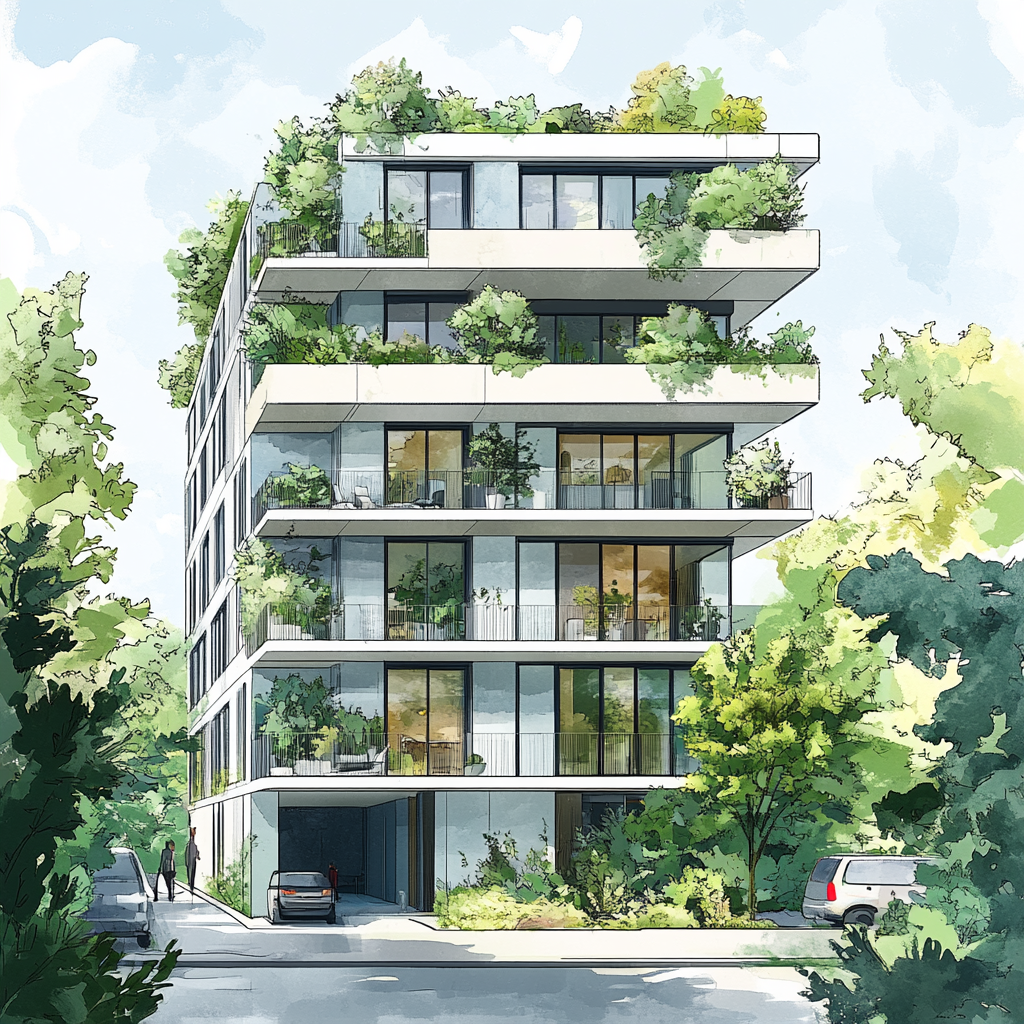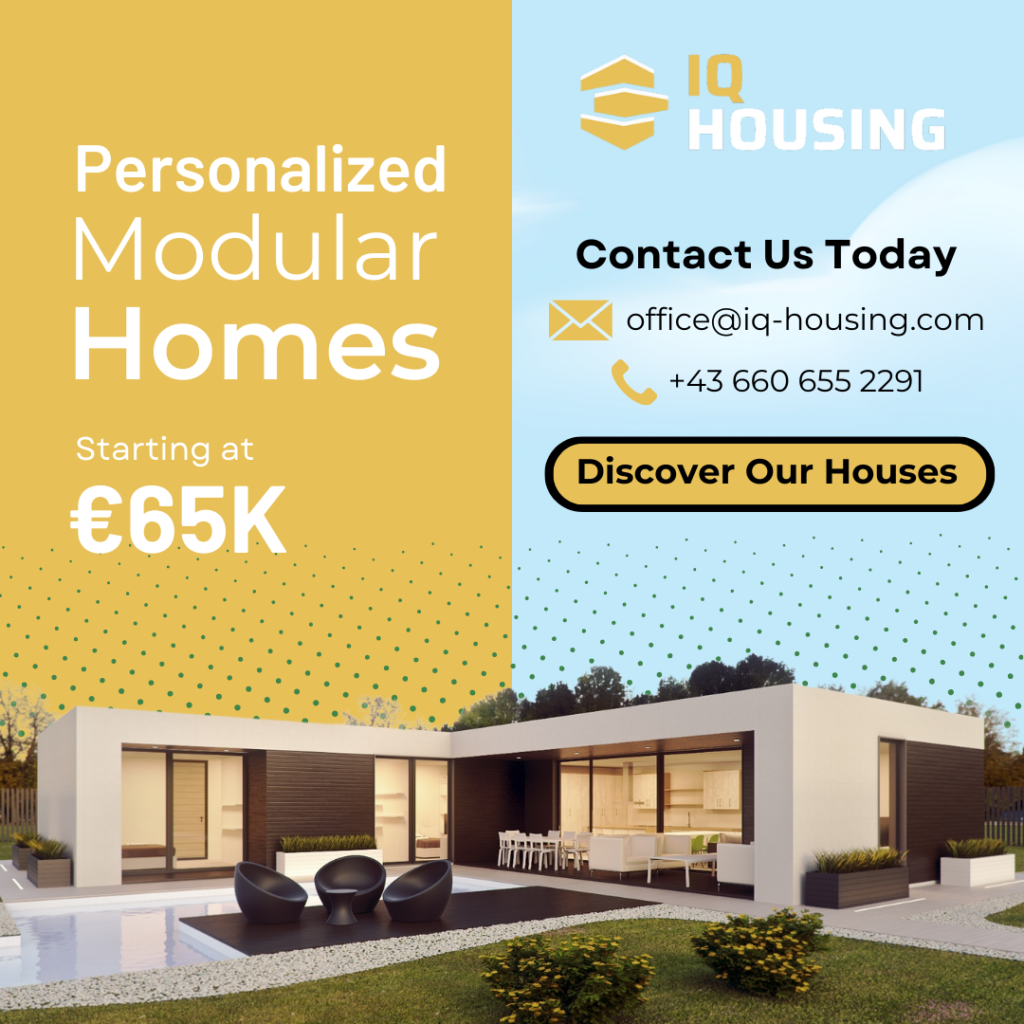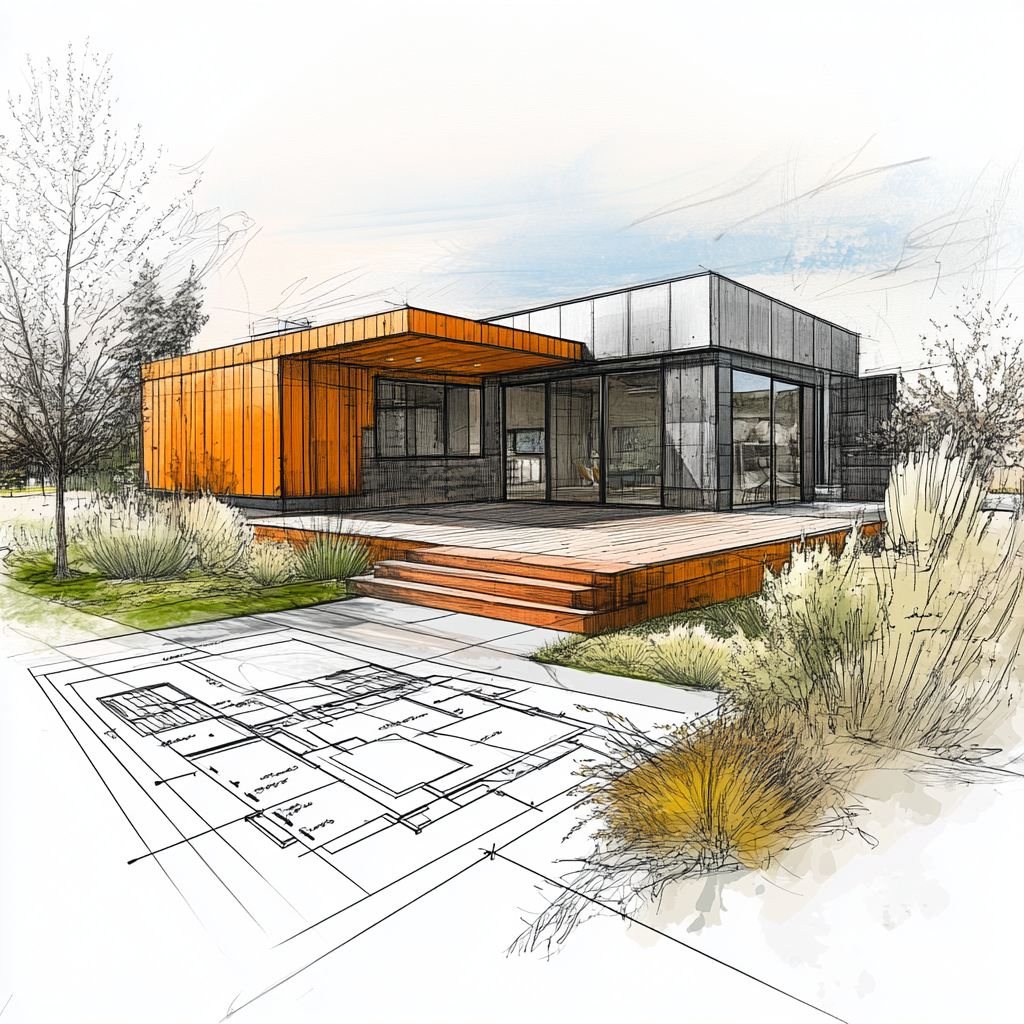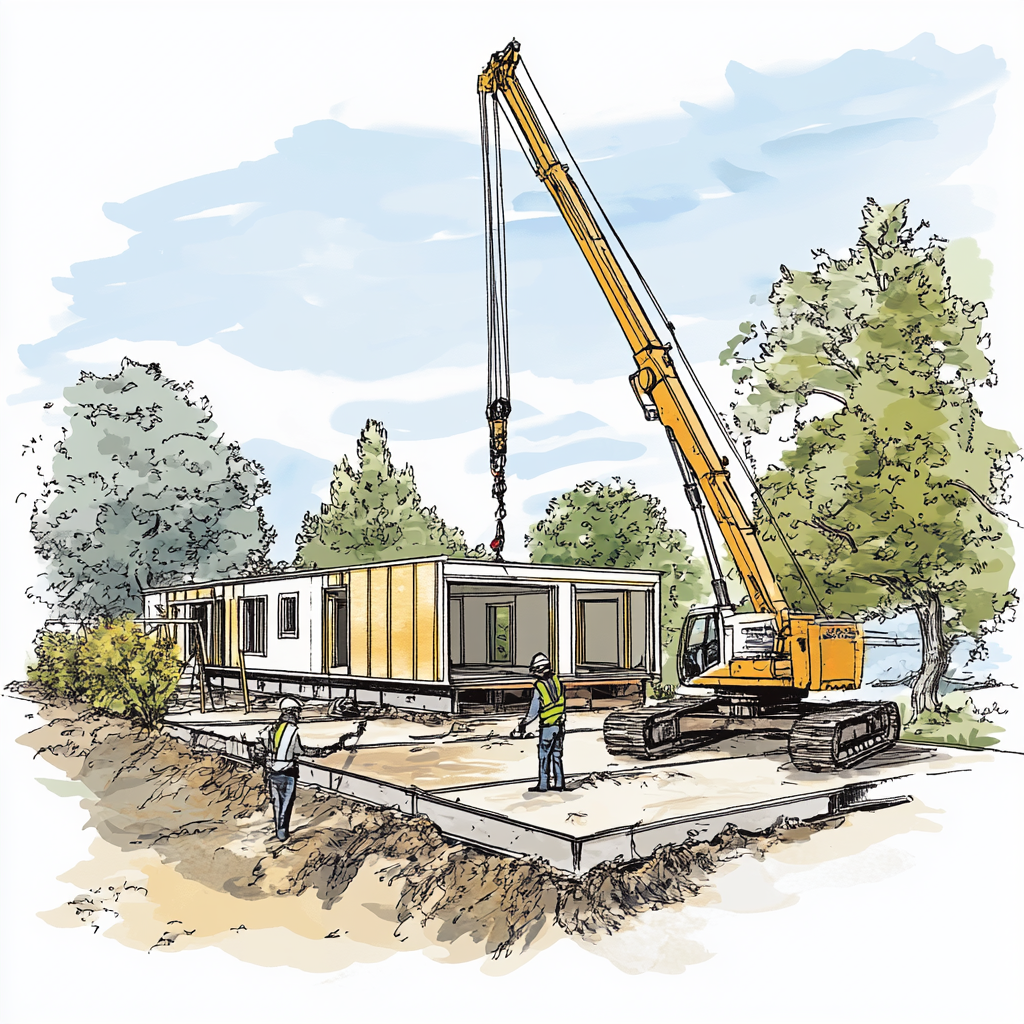Thinking about investing in real estate? Modular homes might be a good option. These innovative houses are affordable, efficient, and have potential for high returns. Let’s explore modular home investments and why they’re becoming popular with investors. As real estate changes, modular homes are emerging as a promising option for maximizing investment potential while reducing risks and construction hassles.
Premium Modular Homes: Investment Benefits
- Higher quality construction than traditional homes
- Faster build time, allowing quicker return on investment
- Energy-efficient designs reduce long-term operating costs
- Customizable options to meet market demands
- Appreciate in value similar to traditional homes
- Lower initial construction costs compared to site-built homes
- Easier to obtain financing with permanent foundations
- Potential for higher rental income due to modern amenities
What Are Modular Homes?
Modular homes are houses built in sections at a factory, then transported and assembled on-site. They’re different from traditional stick-built homes, which are constructed entirely on the building site. IQ Housing, a leader in modular construction, explains that these homes are built to the same codes as regular houses but offer some distinct advantages.
The factory-controlled environment allows for precise construction, reducing waste and ensuring consistent quality across all modules. This method also shields the building materials from weather-related damage during construction, potentially increasing the home’s longevity.
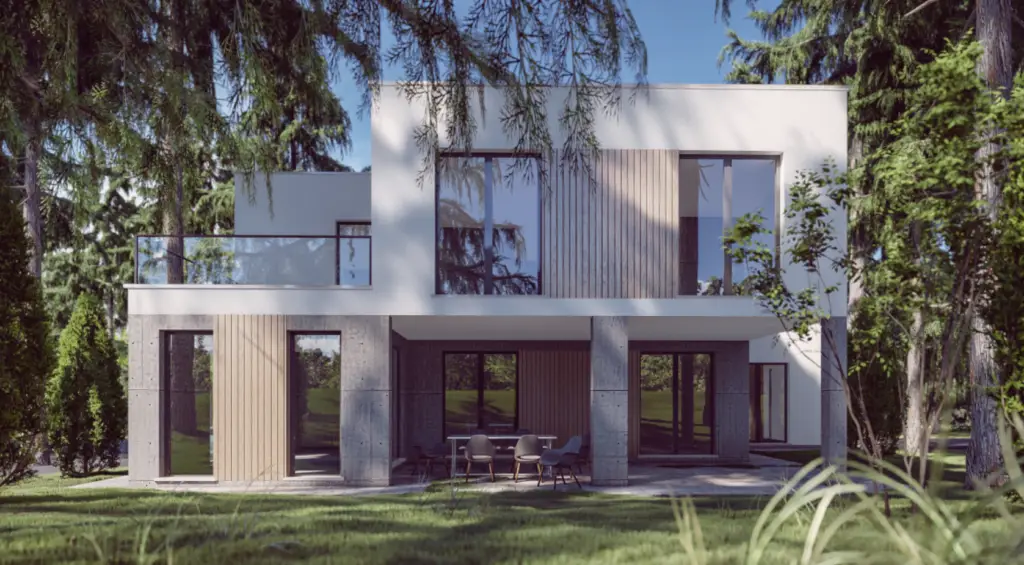
Why Invest in Modular Homes?
Modular homes are gaining popularity for several reasons, making them an attractive option for both new and experienced real estate investors:
Cost-Effective. They’re typically 10-30% cheaper than traditional homes, allowing investors to enter the market with less money upfront. This cost advantage comes from reduced labor costs, bulk material purchases, and less on-site construction time.
Quick Construction. Building time is 30-60% faster than site-built homes, enabling investors to start making money sooner. This rapid construction process can be especially helpful in markets with high housing demand.
Energy Efficient. Better insulation means lower utility bills, which can be a big selling point for potential buyers or renters. Many modular homes come with advanced energy-saving features as standard.
Quality Control. Factory-built sections ensure consistent quality, reducing the chance of construction defects and potential maintenance issues later on. This controlled environment also allows for more precise adherence to building codes and standards.
Customizable. You can choose from various designs or customize your own, allowing investors to tailor their properties to specific market demands or niche requirements. This flexibility can be particularly valuable in diverse real estate markets.
Eco-Friendly. The factory-based construction process typically creates less waste than traditional on-site building methods, appealing to environmentally conscious buyers and potentially qualifying for green building certifications.
Durability. Contrary to what some people think, modular homes are often built to withstand transportation stresses, potentially making them more robust than traditional homes in certain aspects.
The Financial Picture
The European modular construction market offers tremendous growth potential for investors and developers. In 2024, the market is valued at $57.87 billion and is expected to grow to $75.29 billion by 2029—an impressive annual growth rate (CAGR) of 5.41%. The market trend indicates a growing demand for fast, sustainable, and cost-efficient construction methods, and IQ-Housing is perfectly positioned to meet this demand.
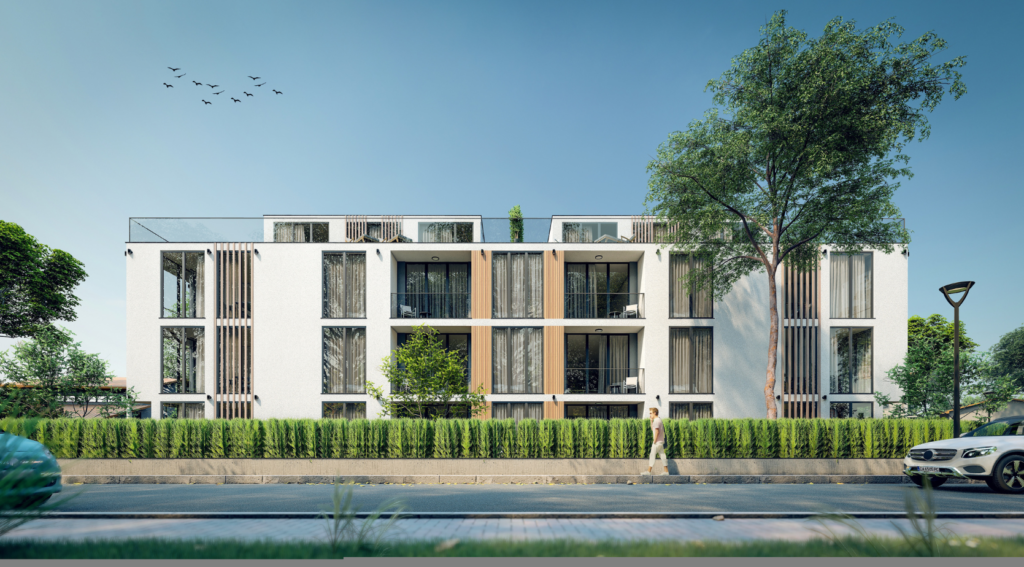
Germany, Austria, and Switzerland are particularly benefiting from the growing demand for prefabricated buildings. Germany leads the European market, driven by strong demand for sustainable construction methods and government subsidy programs aimed at reducing CO₂ emissions. However, countries like the United Kingdom and Spain also offer exciting growth potential. International investors will find attractive opportunities here to bring innovative projects to life.
Sustainability and Government Incentives
Sustainability is at the heart of the modular construction industry. Strict legal regulations and government incentives are accelerating the transition to low-CO₂ building solutions. This regulatory framework provides planning security and long-term stability—key factors for successful investments. IQ-Housing focuses on sustainable construction methods, offering investors solutions that are both environmentally friendly and economically attractive.
Regional Trends and Construction Methods
Regional preferences and material trends are key factors influencing investment decisions. For example, in Sweden, timber frame construction dominates the market with a 95.2% share, highlighting the region’s strong preference for sustainable materials. In contrast, Croatia focuses on solid construction, which accounts for 87.9% of the market.
In Germany, interest in timber frame construction is also growing, offering investors new opportunities to promote environmentally friendly building projects. These regional differences enable targeted specialization and the exploration of new markets.
Turnkey Modular Solutions
Turnkey modular homes are gaining popularity as they combine efficiency, predictability, and high quality. In Spain, they already dominate the market with an 86.3% share. Similar trends are emerging in Hungary, Poland, Switzerland, and Italy. Investors benefit from the quick implementation and stable returns offered by these comprehensive solutions. IQ-Housing delivers tailored, turnkey concepts perfectly aligned with regional requirements.
The European modular construction market blends sustainability, efficiency, and growing investor interest. The DACH region, along with countries like the United Kingdom and Spain, presents excellent opportunities for high returns. With a clear focus on turnkey solutions, sustainable construction methods, and regional specialization, modular construction is a future-proof choice for investors.
The information mentioned in the text is based on three detailed studies on the European modular construction industry. If you’d like to explore the studies in more detail, you can find them at the following links:
European Modular Construction Industry, Market for Modular Constructions, & Market for Prefabricated Buildings.
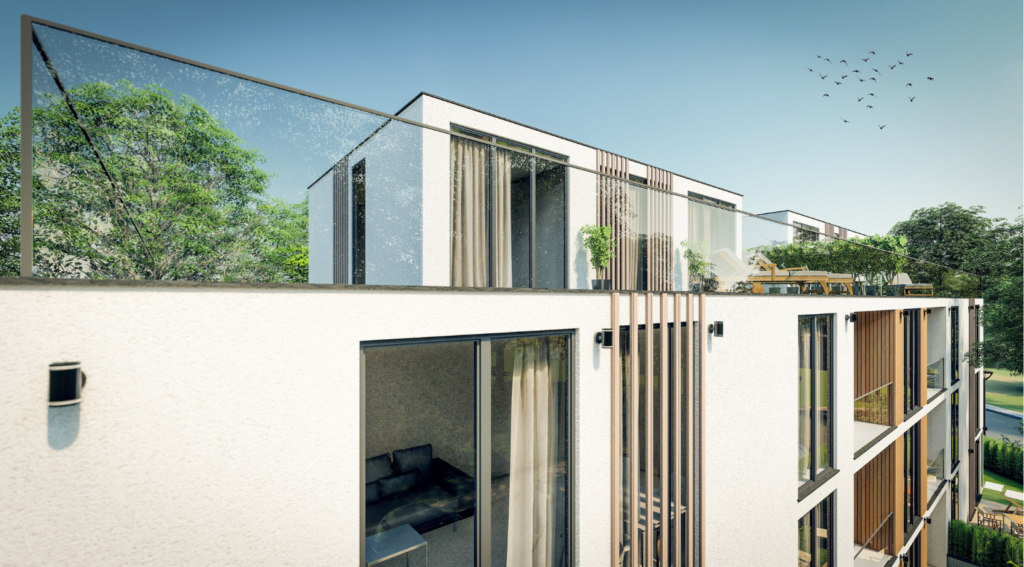
Financing Your Modular Home Investment
Getting money for your modular home investment is similar to financing a traditional home. You have several options, each with its own advantages and considerations:
- Traditional Mortgages: Many lenders offer these for modular homes, treating them similarly to site-built houses. Interest rates and terms are generally comparable to those for conventional homes, especially when the modular home is placed on a permanent foundation.
- Construction Loans: These can cover both the building process and long-term financing. They typically involve a short-term loan for the construction phase, which then converts to a standard mortgage once the home is complete. This option can be particularly useful for custom modular home projects.
- Manufacturer Financing: Some modular home manufacturers offer their own financing options, which can streamline the process and potentially offer competitive rates for qualified buyers.
- Home Equity Loans or Lines of Credit: For investors who already own property, these can be used to finance a modular home investment, leveraging existing real estate assets.
A permanent foundation enhances financing options for modular homes. An experienced mortgage broker can assist in comparing loan options and finding the best solution. Be sure to provide detailed plans and specifications for your modular construction project, as lenders will want to assess the potential value of the property.
ROI: What Can You Expect?
Return on Investment (ROI) is a key metric for the success of any real estate investment. Modular homes stand out due to their lower initial investment and high potential for value appreciation, making them particularly attractive to investors. With reduced construction costs and faster completion times, they allow for earlier rental income or use, leading to above-average initial returns.
Over time, the ROI gap between modular homes and traditional construction may narrow as both types of properties appreciate. However, modular homes often maintain an edge through energy efficiency and lower maintenance costs, enhancing long-term profitability.
That said, it’s crucial to consider individual factors. Local market conditions, property management strategies, and the broader economic environment significantly impact actual returns. While averages can provide guidance, they cannot replace a thorough analysis of the specific investment situation.
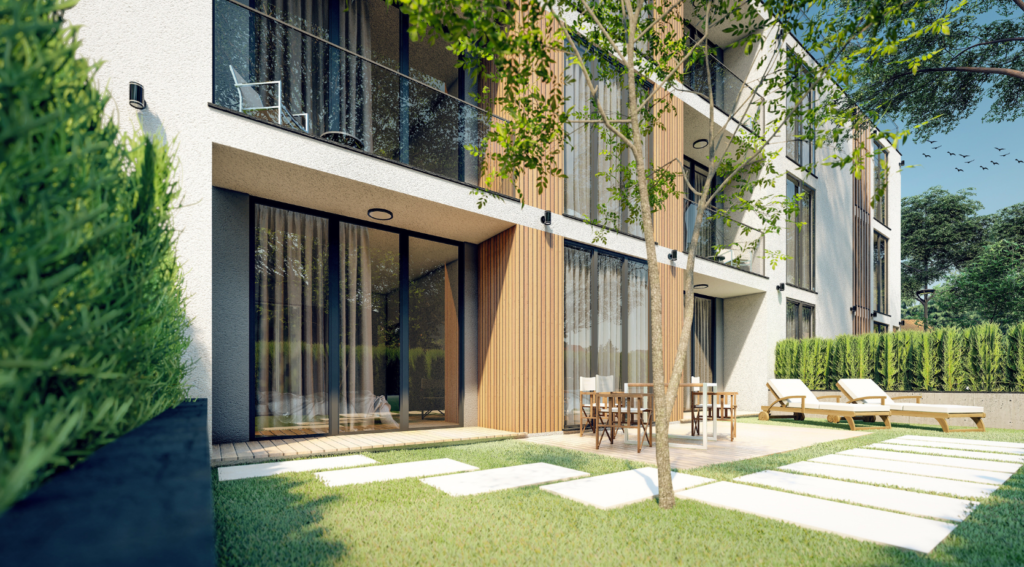
Long-Term Investment Benefits
Investing in modular homes isn’t just about quick returns. There are several long-term benefits to consider that can enhance the overall value of your investment:
Durability. Modular homes are built to last, with some lasting as long as traditional homes. The factory construction process often results in stronger joints and overall structure due to the need to withstand transportation and crane lifting during assembly.
Lower Maintenance Costs. Factory-built sections often mean fewer issues down the line. The controlled environment during construction reduces the likelihood of moisture-related problems and ensures more precise fitting of components, potentially leading to fewer repairs over time.
Energy Savings. Efficient designs can lead to long-term utility cost savings. Many modular homes incorporate advanced insulation techniques and energy-efficient appliances as standard features, which can result in significant savings on heating and cooling costs over the life of the home.
Adaptability. Many modular homes can be easily expanded or modified as needs change. This flexibility allows investors to adapt to market demands or personal preferences without the need for extensive renovations, potentially increasing the property’s long-term value and appeal.
Sustainability. The controlled factory environment typically results in less waste during construction, and many modular home manufacturers prioritize eco-friendly materials and processes. This focus on sustainability can be attractive to environmentally conscious buyers or renters, potentially commanding higher prices or rents in certain markets.
Resilience. Some modular homes are designed with enhanced structural integrity to withstand transportation, which can translate to better performance in extreme weather conditions. This resilience can be a significant selling point in areas prone to natural disasters.
Technological Integration. Many modular home manufacturers are at the forefront of incorporating smart home technologies and innovative building materials. This integration of cutting-edge features can keep the property competitive in the market for years to come, potentially commanding higher resale values or rental rates.
Case Study: IQ Housing’s Premium Modular Homes
Let’s look at some real examples from IQ Housing, a leader in premium modular homes, to understand the practical applications and potential of modular home investments:

1. TRIO Tiny House
- Size: 96 m2 (gross area), offering a spacious living environment comparable to many traditional homes
- Price: Starting at 175,290€, representing a competitive entry point for premium housing
- Features: Three bedrooms, two modern bathrooms, showcasing the potential for modular homes to accommodate larger families or provide rental opportunities
- Ideal for: Families, vacation retreats, or professional spaces, demonstrating the versatility of modular designs
- Investment Potential: The TRIO’s versatile layout and premium features make it suitable for both long-term residential investments and short-term rental markets in desirable locations

2. DUO Tiny House
- Size: 64 m2 (gross area), offering a compact yet comfortable living space
- Price: Starting at 124,440€, providing an attractive price point for investors targeting the growing tiny house market
- Features: Two bedrooms, modern bathroom, balancing efficiency with comfort
- Ideal for: Home office, guest house, or vacation retreat, catering to diverse market needs
- Investment Angle: The DUO’s design makes it particularly suitable for the short-term rental market or as an accessory dwelling unit (ADU) in areas with favorable zoning laws, potentially offering multiple income streams

3. UNO Tiny House
- Size: 32 m2 (gross area), exemplifying the efficiency of tiny house living
- Price: Starting at 54,100€, offering an accessible entry point for investors or first-time buyers
- Features: Cozy bedroom, modern bathroom, open living area, maximizing space utilization
- Ideal for: Office, guest house, or standalone vacation home, appealing to minimalist lifestyles
- Market Opportunity: The UNO’s compact size and affordable price point make it an excellent option for investors looking to capitalize on the growing demand for affordable housing solutions or unique short-term rental experiences
These examples from IQ Housing showcase the range of options available in modular homes, from compact units to spacious family homes. Each model represents a different market segment and investment strategy, allowing investors to tailor their approach based on local demand, budget constraints, and long-term goals.
10 Tips for Successful Modular Home Investment
To make the most of your modular home investment, consider the following expert tips:
1. Review Local Regulations. Consult early with authorities to confirm that zoning and building codes in your target area permit modular homes.
2. Choose Reputable Manufacturers. Opt for experienced providers like IQ Housing that guarantee quality and innovation.
3. Prioritize Energy Efficiency. Invest in high-quality insulation, energy-efficient appliances, and renewable energy solutions to reduce costs and enhance property appeal.
4. Future-Proof Design. Select flexible designs that allow for extensions or modifications to adapt to future market changes.
5. Engage Experts. Work with brokers experienced in modular housing to optimize locations and ensure compliance with regulations.
6. Create a Financial Plan. Account for all costs, including land acquisition, transportation, and site preparation, while calculating potential income and value appreciation.
7. Monitor Market Trends. Stay informed about new technologies and industry trends to maintain a competitive edge.
8. Diversify Your Portfolio. Combine different property types to attract a broader audience and minimize risks.
9. Leverage Speed. Take advantage of the short construction time for modular homes, especially in high-demand markets.
10. Highlight the Benefits. Develop compelling marketing materials that showcase the advantages of modular homes to attract buyers and tenants.
Conclusion: A Smart Investment for the Future
Modular homes offer a unique opportunity for investors looking to capitalize on changing housing market dynamics and consumer preferences. With their cost-effectiveness, quick construction times, and potential for appreciation, they present an attractive option in the real estate market. The combination of lower initial costs, energy efficiency, and adaptability positions modular homes as a forward-thinking investment choice in an evolving housing landscape.
Ready to explore modular home investments further? Contact IQ Housing to learn more about their premium modular home options and how they can fit into your investment strategy. Their team of experts can provide detailed insights into current market trends, financing options, and the latest innovations in modular home design, helping you make an informed decision about your real estate investment future.
